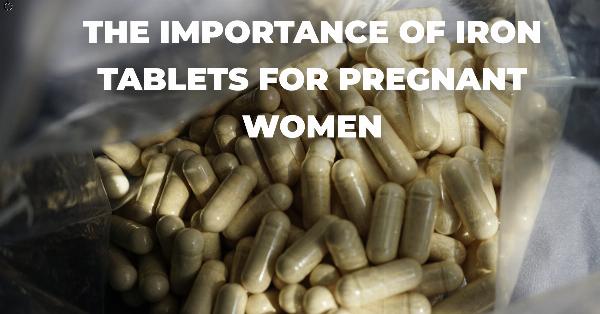Reviewed by Dietitian Jessica Ball, M.S., RD

Photographer: Jake Sternquist, Food Stylist: Annie Probst, Prop Stylist: Joseph Wanek. EatingWell design.
Key Points
A new study found that older adults with higher dietary copper intake performed better on cognitive tests.
Copper plays key roles in brain function, including antioxidant protection and neurotransmitter activity.
Many common foods, like potatoes, nuts and seeds, are rich in copper.
Cognitive health is one of the top concerns for many older adults—and for good reason. Dementia and other forms of cognitive decline affect millions of people worldwide, and the numbers are rising. While there’s no single cause or cure, scientists continue to uncover lifestyle and nutrition habits that may help protect the brain over time. One area getting more attention lately? Micronutrients—especially trace minerals like copper.
Copper may not get as much buzz as magnesium or zinc, but it plays a vital role in brain function. It’s involved in energy metabolism, antioxidant defense and neurotransmitter synthesis—key processes for memory and learning. And now, new research published in Scientific Reports suggests that dietary copper intake may be linked to better cognitive performance in older American adults.
Let’s explore what this study found—and what it might mean for your daily meals.
How Was This Study Conducted?
This was a cross-sectional observational study, meaning it looked at data from a single point in time rather than tracking changes over time. Researchers used data from 2,420 participants age 60 and older who took part in the U.S. National Health and Nutrition Examination Survey (NHANES) from 2011 to 2014.
Participants reported their food intake during two 24-hour dietary recalls. Researchers used those reports to calculate average daily copper intake. They then compared that data to the results of four cognitive tests:
The Digit Symbol Substitution Test (DSST), which measures attention and processing speed
The Animal Fluency Test (AFT), which assesses executive function and language
Verbal memory tests developed by the Consortium to Establish a Registry for Alzheimer’s Disease (CERAD)
A global cognition score combining all tests into one overall metric
Researchers used multivariate regression models to control for age, sex, education, income, lifestyle factors and other dietary variables (including intake of zinc, iron and selenium).
What Did the Study Find?
Overall, the study found that people with higher copper intake scored better on all four cognitive assessments. Compared to those in the lowest quartile of copper intake (less than 0.76 milligrams per day), those in the highest quartile (1.44 mg or more) scored:
Nearly 4 points higher on the DSST (assessing attention and processing speed)
About 1.2 points higher on the AFT (assessing executive function and language)
Significantly higher on memory tests and overall cognitive score
These findings remained statistically significant even after adjusting for a variety of variables, suggesting the link was not simply due to healthier people eating more copper-rich foods.
Interestingly, cognitive scores improved with increasing copper intake only up to a certain point—about 1.2 to 1.6 milligrams per day depending on the test. Beyond that, additional copper didn’t offer further gains.
The association was especially strong among participants with a history of stroke. For this group, high copper intake was linked to even greater improvements in overall cognitive function, possibly due to copper’s role in reducing oxidative stress and supporting brain repair mechanisms after stroke.
This study has a few important limitations to keep in mind. First, because it was observational, it can’t prove cause and effect—only an association. Second, dietary intake was self-reported, which introduces the possibility of error. Finally, nutrient intakes are closely tied to overall dietary patterns, which may also influence cognitive outcomes.
How Does This Apply to Real Life?
While more research is needed, this study suggests that getting enough copper in your diet could be one more way to support your brain as you age—especially if you’ve had a stroke or are at risk for cognitive decline.
Copper is found in a variety of everyday foods, including nuts, seeds, legumes, whole grains and some fruits and vegetables. One fun fact: A single medium baked potato delivers about 75% of your daily recommended copper intake. Other good sources include cashews, sunflower seeds, dark chocolate, chickpeas and lentils.
If you’re eating a balanced diet with plenty of whole, plant-based foods, you’re likely getting enough copper already. The recommended dietary allowance (RDA) for copper is 0.9 milligrams per day for adults, and this study suggests that intakes just above this level—around 1.2 to 1.6 mg/day—may be optimal for brain health.
But more isn’t always better. Excess copper can be harmful, particularly in supplement form, and this study showed no added benefit beyond moderate intake levels. Unless a health care provider recommends it, there’s usually no need for copper supplements.
Our Expert Take
A new study suggests that getting enough copper from your diet may help support cognitive health in older adulthood, especially among people recovering from stroke. The benefits appear strongest with moderate intake—about 1.2 to 1.6 milligrams per day—through food sources like potatoes, seeds, nuts and legumes. While it’s too soon to make copper the next brain-boosting super-nutrient, it’s worth paying attention to how this essential trace mineral fits into your overall diet.
Read the original article on EATINGWELL














